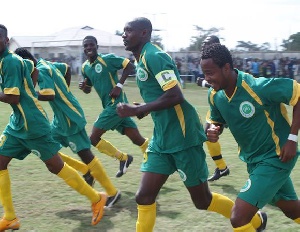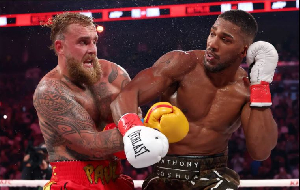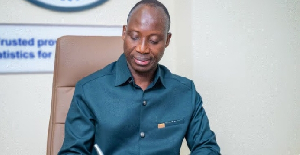For yet another season of the English Premier League, the country's long-standing energy crisis (a.k.a 'Dumsor') ensures Ghanaians are limited in how much of the action they enjoy
The English Premier League, needless to say, is pretty huge fare anywhere in the world.
In Ghana, the aura ahead of the commencement of the latest EPL season was no different. With excitement revved up after ten fallow weeks when all we had was the Copa America and a handful of other competitions, fanatics frothed in anticipation.
The media—print, digital and broadcast alike—spiced the build-up with statistics, analysis of fixtures, the players/transfers they thought would make a difference in the season's course and, ultimately, what the final table could look like come summer next year.
But there remains a peculiar problem for some; a big, dark one you'd easily identify with if you're Ghanaian. You see, while others elsewhere would need no more than cable television to catch action in the world's greatest league live, Premier League enthusiasts in Ghana need much more to power their passion.
Namely, they need electricity. Back in 2750 BC, the ancient Romans had an inkling about electricity, yet even now, in the 21st Century, it feels as though Ghana is still catching up with the concept!
It is a resource that might be common for people in most places, yet a grand scarcity for this writer's countrymen.
Without it, TVs, radios, tablets, and phones don't work. Without those, in turn, it's almost impossible to enjoy the English Premier League in all of its enthralling brilliance.
You see, many Ghanaians cannot afford the luxuries which would enable them to fully enjoy the league in the comfort of their homes, and thus resort to services provided by public viewing centres. However, not all operators of these centres are willing—or, in most cases, have the means—to access and/or sustain alternative power sources (generators, inverters, etc) to keep their small-scale businesses running.
Atta, 23, operates one of such centres somewhere in central Ghana. It's nothing more than a wooden shack comprised of long, rectangular planks nailed atop each other and an aluminium sheet thrown over the structure. There was, per the time of the interview, a small blackboard outside the room inscribed with the day's English Premier League fixtures.
Arsenal, courtesy Olivier Giroud's sweet bicycle-kick, led 1-0 at Crystal Palace in a game Atta charged GHC1.50 ($0.36) for. The big one, between champions Chelsea and challengers Manchester City at the Etihad later in the day, cost GHC0.50 ($0.12) more.
"We do have a mini-sized generator for use when regular power goes out," the senior high school graduate tells Goal.
"Feeding it as often as is required, though, isn't very easy, with fuel prices considerably high."
And just where does this leave his patrons?
Citi FM (97.3) and the BBC (101.3) might give live commentary of the games (usually for the benefit of only listeners in the capital and its immediate suburbs), but it never is quite the same, is it?
Hence, most Ghanaians would have little option but to simply keep themselves updated with the scores online as the occasion demands. At best, they could catch the highlights on Kwabena Yeboah's Monday night sports show but, given that they now have five of their own involved in the Premier League, that's just not enough, is it?
In truth, it's so much less than they deserve.
Sports News of Saturday, 22 August 2015
Source: goal.com













